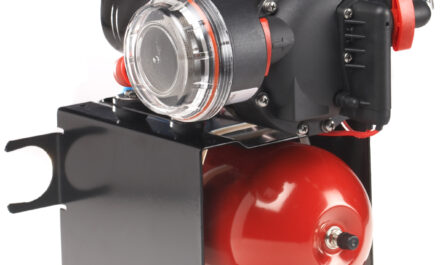Introduction to Diesel Power
They work on the same principle as gasoline generators but use diesel fuel for powering the internal combustion engine. Diesel engines are more efficient than gasoline engines, making diesel power preferred for heavy duty and backup applications.
Types
There are different types of diesel generators available in the market depending on power requirements and usage:
– Stationary Diesel Generators: Large stationary generators are permanently installed outdoors or in a separate room of industrial plants, hospitals, data centers etc. Rated from 50kVA to several MW, they provide continuous primary or backup power.
– Portable Diesel Generators: Compact and lightweight, portable generators are rated from 1kVA to 50kVA. They are routinely used for construction sites, outdoor events, remote work sites and emergency power during outages.
– Trailer Mounted Generators: For applications requiring mobile power, trailer mounted generators up to 300kVA can be easily transported. They are hooked to a trailer and towed to the location.
– Marine Diesel Generators: These generators are specifically designed to operate on ships and boats in harsh marine environments. They meet certifications for marine use and saltwater corrosion resistance.
– Eco-friendly Generators: In recent times, generators using biodiesel or innovative emissions reduction systems have become available to reduce environmental impact.
Applications of Diesel Power
Due to their versatility, robustness and low operating cost, Diesel Generators are a dependable power backup for various industries and establishments:
– Manufacturing Plants: Provide uninterrupted power for manufacturing equipment, machinery, controls and lighting during outages or plant maintenance.
– Telecom Towers: Maintain mobile network connectivity and ensure 24/7 operations of IT infrastructure at telecom tower sites.
– Healthcare Facilities: Guarantee power supply for life-saving medical equipment, patient care areas and data/sample storage even during emergencies.
– Commercial Buildings: Support air conditioning, elevators, security systems and other services crucial for commercial high-rises, malls and office spaces.
– Infrastructure: Power construction equipment, pump houses and temporary sites associated with development of roads, bridges and utility infrastructure projects.
– Events & Film Shooting: Cater to the power needs of outdoor concerts, exhibitions and film/advertisement shoot locations away from mains electricity.
– Off-grid Applications: Provide an independent power source for remote locations like cell towers, villages, fishing hamlets not connected to the electricity grid.
Generator Sizing and Selection
Correct sizing of generators is important to meet the intended load. Engineers consider factors like connected & future load calculations, voltage & phase requirements, ambient conditions and duty cycle to determine the optimal generator capacity, configuration and specifications. Portable units require consideration of noise levels, fuel consumption and transport dimensions as well.
They are available in both AC and DC variants. Single phase generators suit small residential loads while three phase models are preferable for industrial or commercial applications involving heavy machinery. Frequency (50/60Hz), voltage (120V-690V) and amperage ratings need to match site requirements.
Reliable diesel generators assured by reputed manufacturers with certifications increase up-time and reduce maintenance costs over the life of the equipment. Their worldwide distribution and service networks facilitate timely supply, installation supervision and after-sales support as well.
Operation and Maintenance
To deliver years of trouble-free performance, diesel gensets require regular preventive maintenance as recommended by the Original Equipment Manufacturer (OEM). This includes scheduled servicing, component inspections and replacement of worn parts.
Daily checks involve inspecting the fuel, coolant and battery levels along with engine oil pressure. Periodic oil changes, air filter cleaning, alternator brush replacement and testing of safety devices are important. Destructive fuel contaminants are removed through fuel filtering. Operators also keep a track of operating hours to plan major overhauls.
Noise level regulations have made it mandatory to install acoustic enclosures around generators. These not just meet noise norms but also protect the genset from external damage due to weather and dust. Proper ventilation inside acoustic enclosures prevents overheating of the genset. Modern gensets use advanced PLC technology for remote monitoring as well.
Diesel generators will continue playing a pivotal role in running industries, infrastructure and various commercial establishments that require backup or primary power. Compared to alternatives, they offer higher fuel efficiency, longer run-times, lower operating costs and better load matching abilities especially for mission critical requirements. With the latest emissions regulations complied models, diesel gensets can power needs reliably and sustainably.
*Note:
1.Source: Coherent Market Insights, Public sources, Desk research
2.We have leveraged AI tools to mine information and compile it




